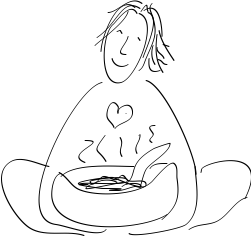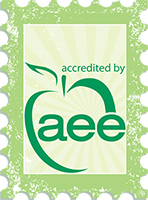Working the land throughout the seasons connects us with each other and the earth, and directly impacts our health. If we are attentive and respectful of our food, that respect increases our sense of belonging to something greater. Here at Kroka, we strive to live, work and eat with reverence for the earth.
Accommodating Special Diets
There are limitations to food and cooking in a wilderness setting, including refrigeration, weight, and cooking equipment — and some needs are greater than we can provide for. While we strive to accommodate every student’s needs, we reserve the right to refuse students with exceptionally severe food allergies and/or dietary restrictions.
If you or your child requires a special diet while at Kroka, please click here for more information about what we can or cannot accommodate.
Food Sources at Kroka
Most meals are vegetarian, and we work to eat meat we have a relationship with: fish that we catch, chickens from our farm, or meat that is raised at local farms. While many ingredients are grown at camp and on local family farms, we also purchase local and/or organically grown products as they are available. We count our food producers as our friends. The wood-fired oven of Noah Elbers at Orchard Hill Breadworks makes us all the bread we need, Harlow Farm helps us meet our produce needs, and Walpole Creamery provides us with world-class ice cream.
“My son has said many times that Kroka had the most delicious food. He was raving to me the other night while we drank some peppermint tea that I just can't understand how good hemlock tea is when you are in the woods and collect the hemlock yourself.”
– Kroka Parent
Cooking and Eating at Kroka
 Communal cooking of delicious wholesome meals over a wood fire is an important part of a Kroka experience. All students are involved in the creation of delicious meals, from milking the cows to splitting the wood needed to start the fire. Students take turns gathering ingredients from the farm, garden, and forest, as well as cooking, cleaning and tending the fire. You may find yourself constructing a spunhungen from which to hang your cook pots, building a fire high above the snow on a fire-screen, or roasting your bread on a stick.
Communal cooking of delicious wholesome meals over a wood fire is an important part of a Kroka experience. All students are involved in the creation of delicious meals, from milking the cows to splitting the wood needed to start the fire. Students take turns gathering ingredients from the farm, garden, and forest, as well as cooking, cleaning and tending the fire. You may find yourself constructing a spunhungen from which to hang your cook pots, building a fire high above the snow on a fire-screen, or roasting your bread on a stick.
For children away from home, the comfort provided by a community meal is critical. We emphasize three nourishing meals per day and provide snacks in between as needed. While the food at Kroka may be different from what some students eat at home, we ask them to keep an open mind and try a small portion. We love to help students discover new foods to enjoy.
Wild, Unprocessed, and Unpasteurized Foods
Please note that students may be offered or served a variety of wild, raw, and unprocessed foods. Examples of this include wild blueberries, fish caught in lakes and rivers, fresh pressed cider, and herbs and vegetables from our garden. If you have any concerns about this, we would be happy to talk with you.
Expedition Food
Longer expeditions require food that has greater endurance and packability. We take pride in a diverse and delicious menu, but it is important to realize there are limitations to the types of food we can carry and store on expeditions.
 Food is not matter
Food is not matter
But the heart of matter,
The flesh and blood of rock and water, earth and sun.
Food is not a commodity
Which price can capture,
But exacting effort,
Carefully sustained,
The life work of countless beings.
With this cooking I enter
The heart of matter.
I enter the intimate activity
Which makes dreams materialize.
-Edward Espe Brown
